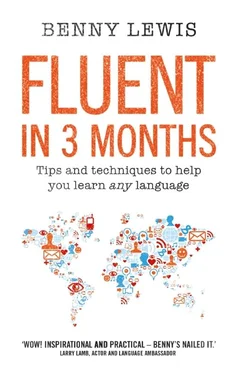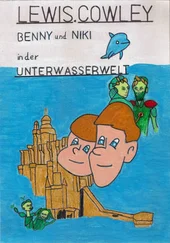Success in language-learning doesn’t come from having the perfect circumstances or require a perfect language-learning system. Success relies heavily on facing challenges with the right mentality, having motivation and passion, and sticking to the learning process until you charge through the ‘brick wall’ in your way.
Someone with mountains of passion will always find a way to progress in his or her target language, even if that person uses inefficient learning approaches or gets stuck on plateaus for long periods of time. There are successful language learners who learn very differently from me – sometimes slower, sometimes faster, sometimes with better language skills or more languages under their belts. Without fail, however, the one thing we always have in common is passion.
In fact, every language-learning challenge I have ever taken on has had its disappointing failures. I’ve had moments when I felt like giving up, when I saw others doing much better than I was, and when I had trouble finding people to practise with. I’ve struggled with conversations that went nowhere, had some rough starts, hit plateaus, forgotten words I should have known, and experienced countless other obstacles that made me feel like a failure, all of which led to many hours of frustration. But I kept going because I wanted to keep going. I had a passion for language, and that’s how I’ve been able to learn to speak twelve languages and counting.
Once you learn one new language, you’re off and running. Learning the first foreign language gives you the skills to learn a second, and then a third, faster and more efficiently.
In the following pages, I’ll show you how to master a new language, with the lessons I’ve learned and the techniques I’ve applied while transitioning from a monoglot to a polyglot, plus give you solutions to – or ways around – difficult problems. Believe me, none of it involves re-engineering your DNA to add in the language gene. Instead, this collection of lessons can be used by any language learner, at any stage or any age, and it includes the same lessons millions of people have already been using on my blog: Fluentin3months.com.
Follow-Up
千里之行,始于足下
Qiān lǐ zhī xíng, shǐ yú zú xià.
A journey of a thousand miles begins with a single step.
CHINESE PROVERB
The first step in language-learning is to make the commitment to do whatever it takes to make your project a success. If you have the passion to do what it takes, no matter what that may require, then this will ensure that you will, soon, be able to speak your target language.
For more on my story and other thoughts on the importance of passion in language-learning, check out fi3m.com/intro, where there are videos, links to sites of people mentioned in this chapter, and extra updates designed specifically for readers of this introduction.
CHAPTER 1
Destroying Twenty Common Language-learning Myths
Stop making excuses. There’s simply no reason you ‘can’t’ learn a new language, and I’ll tell you why.
I can confidently say that any person on earth can learn a second language, no matter what their age, intelligence, working or living situation is, or what their past attempts to learn languages have been like. When our mentality, motivation, passion, and attitude are kept strong, we have the momentum required to charge on towards language fluency.
But there’s a catch. Even with the best intentions and most enthusiastic starts, we are all bound to run into challenges along the way – sometimes before we even begin or at the very first step of the journey – that prevent us from really starting to learn the language.
The thing is, while these obstacles may feel like brick walls preventing us from continuing on our path towards speaking a language, many of them are actually myths that exist nowhere but in our minds.
The reasons we give for why we can’t learn a language often have us second-guessing ourselves, wondering if all this language-learning business isn’t for us at all. Many may feel too old, untalented, busy, or located too far from any native speakers. There are a host of reasons, excuses, and discouragements we tell ourselves, have been told by others, or just presume to be true. Well, there is no good excuse for not learning a language and advancing towards fluency.
I have personally talked to thousands of language learners, with millions more reading my blog over the years, and I have heard about pretty much every possible setback learners have had (and I’ve had quite a few myself!). In this chapter, I share with you the twenty most common retorts people have given me when I tell them they can, and should, learn a second language – some of these you have probably felt yourself – and I’ll explain why each one of them is baseless, or at least has a good solution, as well as many examples of people who have overcome this challenge before.
1. Aren’t Adult Language Learners at a Disadvantage?
One of the most common reasons many people give for not even trying to learn a language is that, once someone passes a certain age, learning a new language is pointless. This almost feels like common sense. ‘Children are better language learners’, people often tell me, ‘and after a certain age you simply can’t learn a language.’
I know I certainly felt too old already, even at the age of twenty-one. However, the idea has never held any water or been demonstrated as true by any serious scientific study. Instead there is only a general trend of adults not learning languages as well as children – but this may be true for reasons totally unrelated to age. Adults struggle with new languages most especially because of a misguided learning approach, their learning environment, or their lack of enthusiasm for the task, all of which can be changed.
Fluency in a second language is definitely possible for all ages. The ‘I’m too old’ excuse is one of many self-fulfilling prophecies we’ll be coming across in this chapter. By telling yourself you are too old, you decide not to put in the work and, thus, don’t learn the language. The vicious cycle continues.
The idea that babies have an advantage over us because their brains are hardwired to learn languages while ours aren’t is also not the case. No matter what language you are taking on, you have a vast head start on any baby learning that language, simply because you cannot start from scratch as an adult learner. Starting from scratch is what is truly impossible. There is a huge difference between learning your first language and learning your second. Without the thousands of words that your second language may have in common with your first, a baby has to do much more work, work that we adult learners so merrily take for granted.
It took you years to be able to confidently distinguish between all the sounds in your native language. When you start to learn a new language as an adult, there are so many learning processes you get to skip that babies have to spend years working on. How about not needing to learn how to distinguish between sounds like an m and an n ? Or all the other sounds that the majority of languages have in common? You also don’t have to concern yourself with developing the muscles in your voice box and tongue in order to even attempt to make noises with them. Or with training your ear to be able to distinguish between male and female voices, or between the particular voices of family members and friends, not just other noises in your environment.
Adult language learners also have the advantage of already having been exposed to years of context in universal human interaction, which indicates when someone is angry, shouting, or asking a question, or the many other aspects of international body language, intonation, and speech volume. One study at the University of California, Los Angeles, actually found that an incredible 93 percent of communication of emotions is nonverbal. And a majority of nonverbal communication is universal. A laugh is a laugh, across the world.
Читать дальше












